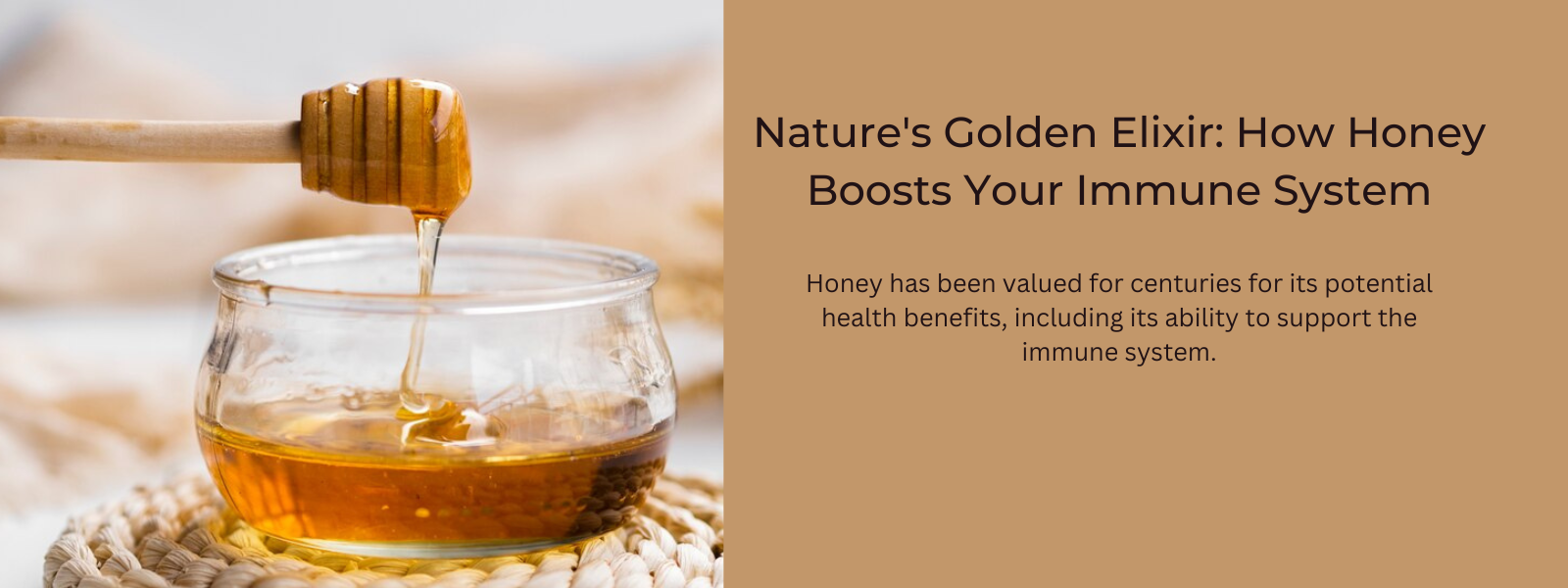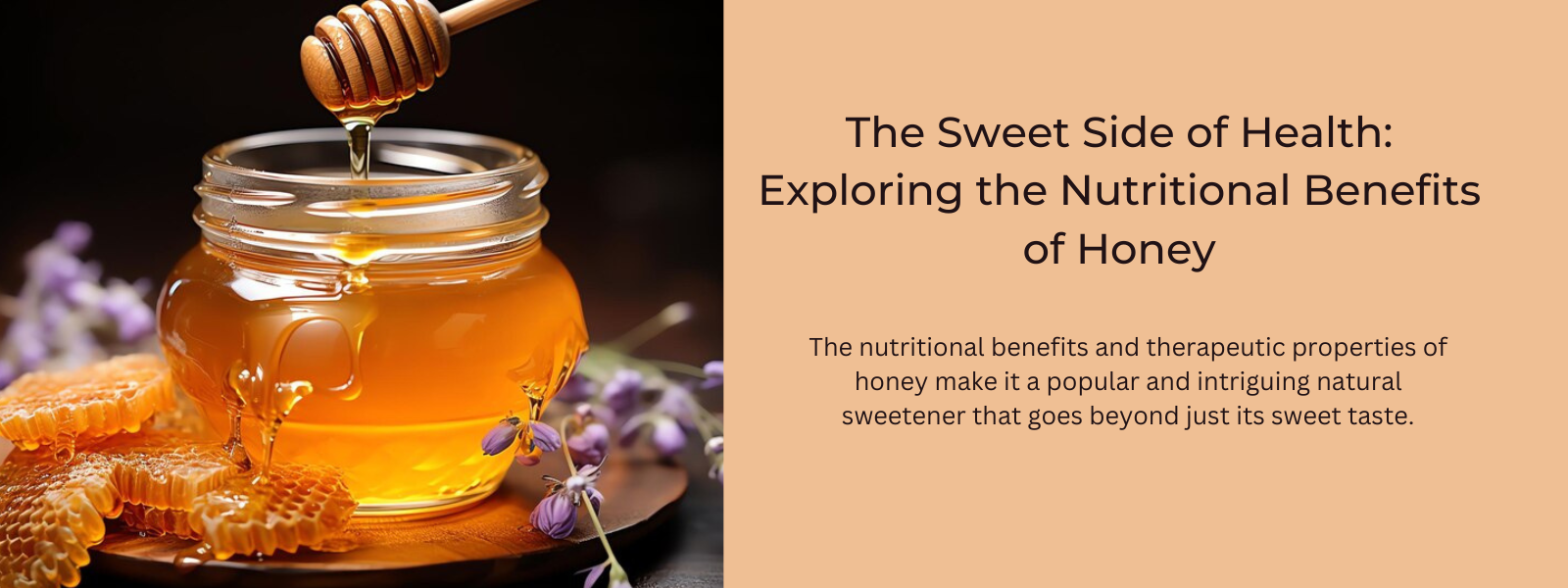The connection between honey and heart health revolves around several potential factors that suggest honey might positively influence cardiovascular well-being. Honey contains antioxidants like flavonoids and phenolic compounds, which help reduce oxidative stress and inflammation in the body, contributing to a healthier cardiovascular system. Certain types of honey have shown the potential to positively impact cholesterol levels, potentially increasing beneficial HDL cholesterol while decreasing harmful LDL cholesterol.
Table of Contents
What Is Honey?
Honey is a natural sweet substance produced by honeybees from the nectar of flowers. It is a viscous liquid with a pleasing taste and aroma, ranging in color from light golden to dark amber, depending on the floral source. Bees collect nectar from flowers and store it in their honey stomach, where enzymes break down the complex sugars into simpler forms.
Is Honey Low In Cholesterol?
Yes, honey itself is naturally free of cholesterol. Cholesterol is a type of lipid found in animal-based products, and since honey is derived from plant nectar, it does not contain cholesterol. Therefore, pure honey, in its natural form, does not contribute to increasing cholesterol levels in the body.
How Is Honey And Heart Connected?
Honey has been associated with potential benefits for heart health due to its rich content of antioxidants that help combat oxidative stress, its anti-inflammatory properties, and its potential to positively influence cholesterol levels, blood pressure, and blood sugar control:
- Antioxidants: Honey contains various antioxidants like flavonoids and phenolic compounds. These antioxidants help reduce oxidative stress and inflammation in the body. Lowering oxidative stress can support heart health by preventing damage to blood vessels and reducing the risk of atherosclerosis (hardening and narrowing of arteries).
- Cholesterol Management: Some studies suggest that honey may have a favorable effect on cholesterol levels. While research outcomes are mixed, certain types of honey, particularly raw and high-quality varieties, might help increase HDL (good) cholesterol levels and decrease LDL (bad) cholesterol levels, potentially reducing the risk of heart disease.
- Blood Pressure Regulation: Consumption of honey in moderation has been associated with a potential modest reduction in blood pressure, particularly systolic blood pressure. This effect might be due to honey's antioxidant and anti-inflammatory properties, which could contribute to better heart health.
- Anti-inflammatory Effects: Chronic inflammation is a significant factor in the development and progression of cardiovascular diseases. Honey's anti-inflammatory properties may help reduce inflammation markers, thereby potentially lowering the risk of heart disease.
- Vasodilation and Endothelial Function: Some research indicates that honey might improve endothelial function, the inner lining of blood vessels, and promote vasodilation. By improving blood flow and blood vessel function, honey might indirectly support cardiovascular health.
- Blood Clot Prevention: Certain types of honey, such as Manuka honey, contain compounds that have been studied for their potential to prevent the formation of blood clots, reducing the risk of thrombosis and related cardiovascular events.
How Can Honey Be Used For A Healthy Heart?
Using honey as part of a heart-healthy lifestyle involves incorporating it wisely into your diet and daily routines. Here are some ways to use honey for a healthier heart:
- Natural Sweetener Replacement: Substitute honey for processed sugars in your diet. Use it to sweeten beverages like tea, coffee, or smoothies instead of refined sugars, thereby reducing added sugar intake.
- Healthy Snack: Enjoy honey with fruits, nuts, or whole-grain crackers as a healthier sweet snack option. Pairing honey with foods rich in fiber, healthy fats, and nutrients can create balanced snacks that support heart health.
- DIY Salad Dressing: Make homemade salad dressings with honey, olive oil, and vinegar or citrus juices. Honey can add a touch of sweetness to dressings without relying on excessive amounts of added sugars or artificial ingredients.
- Baking and Cooking: Use honey in cooking and baking recipes as a natural sweetener. It can add moisture and sweetness to dishes, replacing some or all of the sugar content in recipes.
- Natural Cough Remedy: When dealing with a cough or sore throat, consume honey mixed with warm water or herbal tea. Honey's soothing properties can help ease throat irritation and coughing, supporting overall comfort during illness.
- Moderation and Balance: While honey offers potential health benefits, it's crucial to use it in moderation due to its high sugar content. Incorporate honey as part of a balanced diet, focusing on whole foods, fruits, vegetables, lean proteins, and healthy fats.
Conclusion:
Remember that while honey offers potential benefits for heart health, overall cardiovascular well-being depends on various factors, including lifestyle, diet, exercise, and medical considerations. Using honey as part of a well-rounded healthy diet and lifestyle may contribute positively to heart health, but it should be part of an overall balanced approach to wellness.











Leave a comment